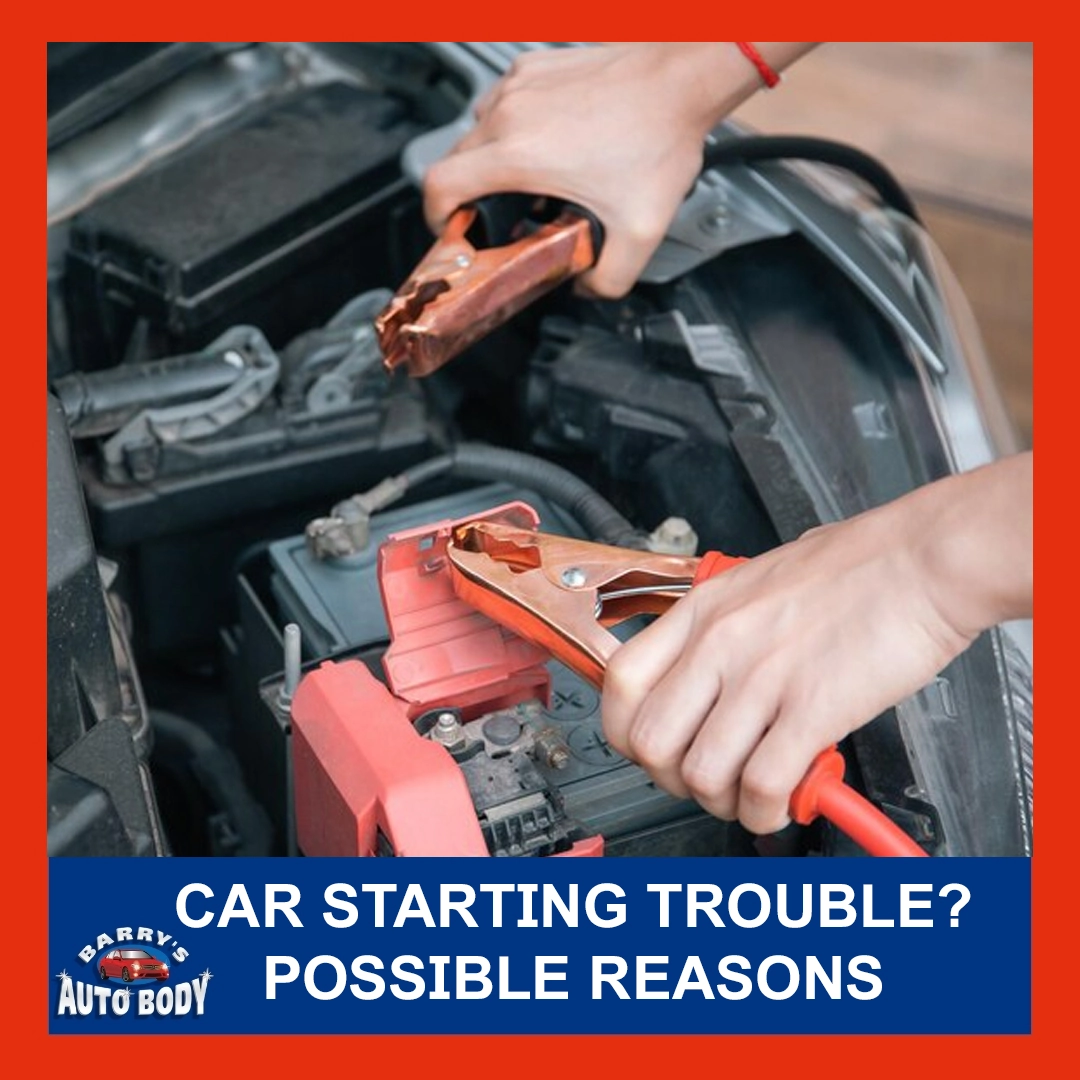Car starting trouble is a simple problem that hits many car owners. Sometimes, it can be a reasonably common issue, and you get it fixed in minutes at the most. However, there are other times when it becomes a big and labor-intensive affair that will require more time than you have to spare.
So, you may wonder why your car wouldn’t start, so here’s what you should know before you go and solve the issue yourself.
Dead Battery
A dead battery is one of the most common reasons your car won’t start. Turning on the ignition makes the battery generate an electrical charge supplied to your car’s electric starter system. If the battery is dead, the power supply to the starter system fails, preventing the vehicle from starting. If your battery is nearing the end of its lifespan, it may be time to replace it. You can do that yourself or have a professional install and test one for you.
Here are some possible causes that could lead to a dead battery:
- Using your car’s lights or other electrical accessories on when they’re not needed
- Loose battery terminal connections
- Dirty or corroded contact points
- Exposure to high temperature
Dead Alternator
If the battery is dead, you might be able to jump-start it and get going. But if that doesn’t work, then the next thing to check is the alternator.
The alternator is an electric device used to charge batteries and generate electricity so power can reach the starter system. If its output isn’t enough, it will reduce performance and make starting more difficult for any car model or engine type. A dead alternator could be the problem, or it might have stopped working properly through fatigue. In this case, you should consult with a professional regarding your car’s charging system and power source.
Defective Spark Plugs
This is a common problem for older cars. The spark plugs are the small metal cylinders that ignite the fuel mixture and allow the engine to run. If your vehicle has a bad spark plug, it will not start or even cranks over at all. A bad spark plug can also lead to an engine misfire. The voltage from the combustion process isn’t enough for all cylinders to work together and hold a proper position, causing hesitation or stalling when driving.
If you find that your ignition coil or spark plug is dirty, damaged, or an incorrect type for your car’s engine, then a professional will be able to help. Don’t attempt this repair yourself unless you’re confident in doing so.
The best course of action is to visit your nearest auto repair shop, where they can tell you if the spark plugs need replacing or not and how much that may cost.
Clogged Fuel Filter
A clogged fuel filter can also prevent your car from cranking easily. The fuel filter helps keep the engine clean and ready to run. If the fuel filter is clogged, it can cause an increase in gas consumption and hard starting. There may be too much pressure with a clogged filter to allow the fuel pump or other accessories to run correctly.
Following are the symptoms of a clogged fuel filter:
- Decreased fuel efficiency
- Random misfire
- Stalling
- Reduced power output
- A pungent smell of gasoline coming from the engine compartment
- Loss of acceleration accompanied by a rattling sound when accelerating or decelerating
You should visit an auto repair shop for help on this issue if it persists even after a thorough cleaning and replacement of your fuel filter.
Malfunctioning Fuel Pump
The fuel pump is a crucial part of the fuel delivery system, and it works with the injectors to provide power to your engine and pressure and flow. If this component malfunctions, it can cause several issues that could ultimately prevent your car from starting at all.
The fuel pump is used to distribute gasoline throughout an engine and push it into the cylinders for combustion. For example, the amount of pressure provided by a gas pedal directly affects how fast fuel passes through this device when you’re driving your vehicle or running other equipment that uses power through electricity and/or batteries (such as fans).
Engine Not Starting Properly Quick Checklist
Check the engine for proper lubrication; check and adjust fuel gauge, timing, temperature gauges, and other electrical elements as required. These features provide information about your car’s state of health so that you know if all is working properly. The electronic wiring could also be at fault due to dirt or corrosion inside the cable connectors or wires themselves getting blocked from solid objects in a jamming situation.
If there are no obvious problems with the engine, check the ignition system (strokes key) and see what is causing it to not turn over.
You can also look out for loose wires to ensure everything is in order.
If the issue doesn’t seem to be mechanical, a good jump-start might be enough to get your car juiced up and running.
If you’re having trouble starting your vehicle, try checking all of the mechanical components first and see if any are causing the issue. If the DIY techniques don’t work and if you do not have the technical know-how on how to fix the issue, we recommend contacting a professional mechanic.

